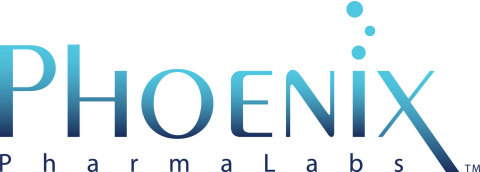Phoenix PharmaLabs Strengthens its Position as a Developer of Next Generation Pain Pharmaceuticals with the Acquisition of a Portfolio of NOP/Mu Agonist Compounds
Phoenix PharmaLabs Strengthens its Position as a Developer of Next Generation Pain Pharmaceuticals with the Acquisition of a Portfolio of NOP/Mu Agonist Compounds
SALT LAKE CITY--(BUSINESS WIRE)--Phoenix PharmaLabs, a privately-held pre-clinical drug discovery company dedicated to the development of potent, non-addictive treatments for pain and addiction, today announced it has completed a license agreement with the University of Bath in England for exclusive rights to a portfolio of 25 NOP (Nociceptin) compounds. The specific terms of the license agreement were not disclosed.
One of the compounds, formerly known as BU10038, was the focus of a peer-reviewed paper published in the British Journal of Anaesthesia, Vol. 122, in March 2019. This compound, which has properties like the company’s lead compound, PPL-103, has been renamed PPL-138 and will be developed as a non-addictive treatment for chronic pain.
Bill Crossman, President and CEO of Phoenix, said, “We believe that this compound has the potential to be as important as PPL-103 in our pursuit to provide the next generation of non-addictive pain pharmaceuticals. Millions of people suffer from acute and chronic pain and many of them continue to suffer through their pain because of their fear of opioid addiction. With both PPL-103 and the addition of PPL-138 to our portfolio, we believe we can help meet the unmet need for effective non-addicting treatment of moderate to severe pain.”
PPL-103 is an agonist that partially stimulates three pain receptors in the brain (mu, kappa and delta), thereby avoiding the problems inherent in all other approved opioids in use today that fully agonize the mu receptor. The mu receptor produces the euphoric “high” that leads to abuse and addiction.
PPL-138 is a partial NOP (Nociceptin)/mu agonist. In a series of studies in non-human primates (NHP) conducted at Wake Forest University, PPL-138 demonstrated it had:
- Robust analgesic potency (100x potency of morphine)
- Long duration of action (more than 24 hours)
- Little or no euphoria (which leads to abuse and addiction)
- No physical dependence (no withdrawal symptoms)
- No respiratory depression (low risk of lethal overdose)
- No tolerance (after four weeks of chronic administration)
“Following an extensive search of our competition, the partial NOP/mu characteristics exhibited by PPL-138 were found to be the one technology that appeared to be as promising as PPL-103. This provides Phoenix with a broad IP platform of more than 30 compounds, at least two very promising lead drugs using different approaches that we expect to get into the clinic in 2021, expanded grant opportunities, and the flexibility to develop different products for different markets, such as acute and chronic pain and addiction therapy, for example,” said Crossman.
Phoenix recently launched its second offering via the Netcapital platform: https://netcapital.com/companies/phoenix. Proceeds from this campaign will be used to further support the development of both PPL-103 and PPL-138. Phoenix raised more than $1 million in an over-subscribed offering via Netcapital that closed in March 2019. That funding, as well as $3 million received in grant funding from the US Army Medical Research and Material Command and the NIH/National Institute for Drug Abuse, has been used to further the development of PPL-103 in the last two years. Phoenix (https://www.phoenixpharmalabs.com) is emerging as a leader in developing the next generation in pain pharmaceuticals. Follow Phoenix on social media:
Facebook: https://www.facebook.com/ppl103
Twitter: https://twitter.com/PhoenixPharmLB
LinkedIn: https://www.linkedin.com/company/phoenix-pharmalabs-inc-/
Contacts
Bev Jedynak, 312-943-1123
blj@bevlynconsulting.com
bev@phoenixpharmalabs.com
